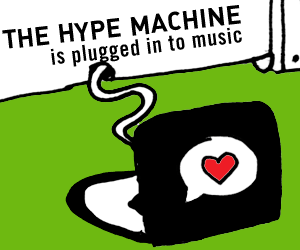In the ever-evolving realm of education and learning, where info moves abundantly and access to understanding is just a click away, student-driven encyclopedias are becoming a dynamic tool in the learning procedure.

These systems not only supply students with a repository of details however likewise motivate them to contribute, modify, and curate material, promoting a collaborative and interactive discovering setting.
As academic standards change qammunity for students towards even more participatory and inclusive versions, the principle of student-driven encyclopedias embodies this improvement. These platforms equip trainees to come to be active individuals in knowledge production, bridging the space between conventional textbook knowing and modern electronic resources.
The Concept of Student-Driven Encyclopedias
Student-driven encyclopedias are digital systems where pupils collectively gather, verify, and share information on a broad range of topics. Unlike standard encyclopedias, which are typically created by specialists, these platforms utilize the joint efforts of trainees to create a thorough body of knowledge.

At their core, student-driven encyclopedias are designed to grow crucial thinking, research study skills, and digital proficiency amongst trainees. By participating in the process of web content production, students learn to browse and evaluate information seriously, abilities that are vital in today’s information-rich society.
Moreover, these systems serve as an area for trainees to discover their passions and share their proficiency. This democratic strategy to knowledge creation guarantees that a varied series of point of views and voices are represented, enhancing the discovering experience for all individuals.
- Students acquire hands-on experience in study and material creation.
- Motivates cooperation and peer communication.
- Promotes a much deeper understanding of subject matter.
- Fosters inclusivity and diversity in understanding depiction.
Fundamentally, student-driven encyclopedias transform trainees from easy recipients of information into active contributors, instilling a sense of possession and obligation in their instructional journey.
Advantages of Student-Driven Encyclopedias
One of the principal benefits of student-driven encyclopedias is the development of necessary 21st-century skills. As students take part in the procedure of content creation, they hone their essential thinking, electronic proficiency, and communication abilities, all of which are critical in today’s interconnected world.
Additionally, these platforms urge a collective understanding setting, where students can work together to confirm info, argument different point of views, and co-edit posts. This peer-to-peer interaction not just boosts finding out end results however likewise cultivates a feeling of community and common respect among students.
In addition, student-driven encyclopedias use a system for showcasing trainee work. As students contribute to the encyclopedia, they construct a profile of their study and writing, which can be vital for further scholastic and expert searches.
Difficulties and Limitations

Regardless of the countless benefits, student-driven encyclopedias likewise encounter certain obstacles. Making sure the accuracy and integrity of information is extremely important, as these systems depend on payments from pupils who might not yet possess expert-level expertise.
- Keeping material high quality and accuracy.
- Offering adequate guidance and guidance.
- Making certain fair access and inclusivity.
To minimize these obstacles, numerous student-driven encyclopedias implement a system of checks and balances, where material is examined by instructors or experts before magazine. This ensures that the info provided is both accurate and reliable, supporting the honesty of the platform.
The Future of Student-Driven Encyclopedias
As modern technology remains to breakthrough and the landscape of education and learning advances, the possibility for student-driven encyclopedias is large. These systems have the capacity to not just complement standard instructional sources yet also redefine the means knowledge is obtained and shared.
In the future, we could see student-driven encyclopedias integrating more advanced innovations such as expert system and artificial intelligence to enhance material curation and personalization. In addition, they may expand past textual information to consist of multimedia web content, offering a more immersive learning experience.
Equipping the Next Generation
Student-driven encyclopedias hold the assurance of encouraging the future generation of learners. By placing trainees at the helm of knowledge development, these systems encourage lifelong discovering, inquisitiveness, and intellectual independence.
Finally, as academic systems continue to innovate, student-driven encyclopedias stand as a testimony to the power of cooperation and the importance of student firm in the understanding process. By accepting these systems, we open the doors to an extra comprehensive, engaging, and vibrant instructional experience for all.

